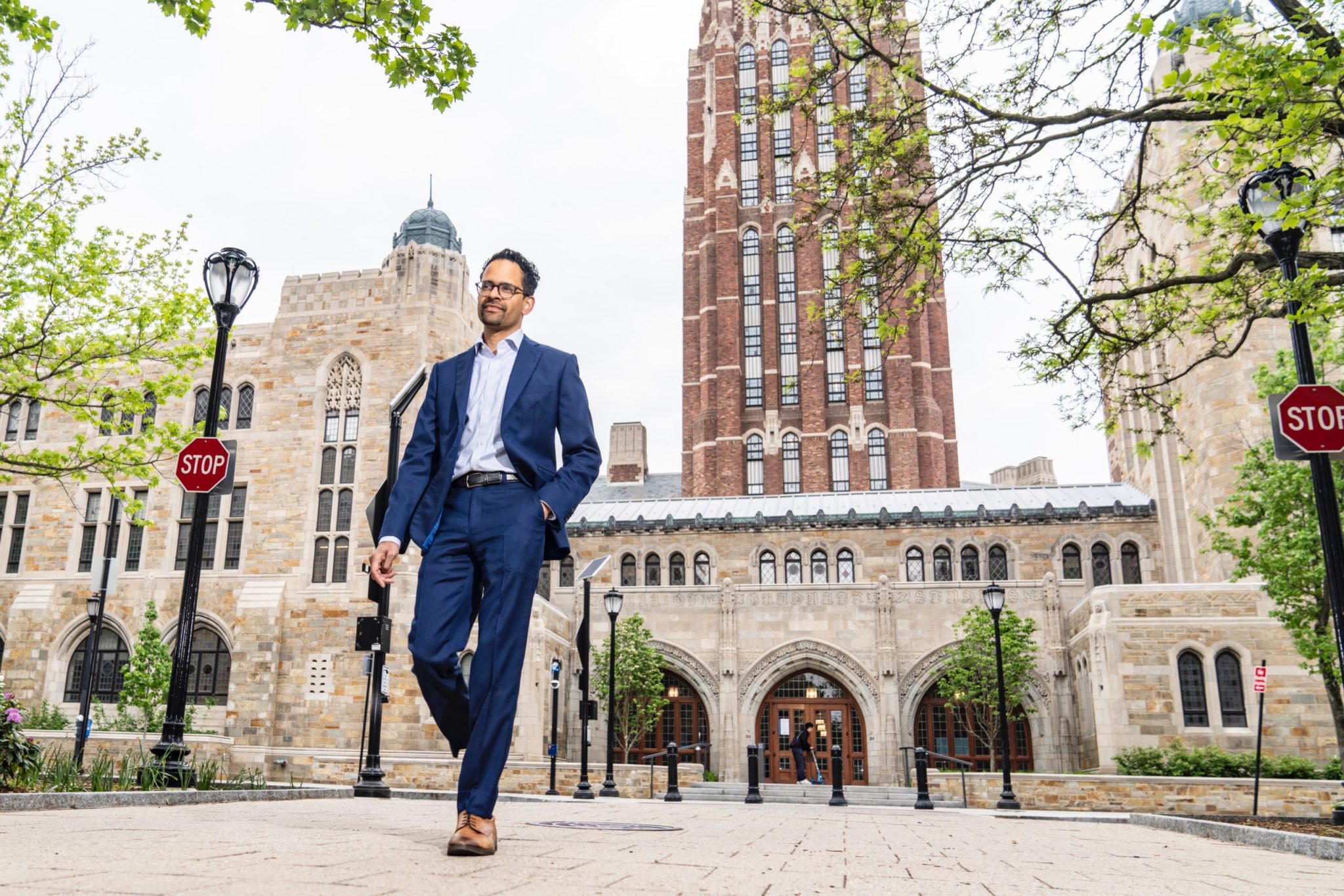Sunil Amrith Wins the 2022 Dr. A.H. Heineken Prize for History
Yale history professor Sunil Amrith was among the 12 laureates honored by the Royal Netherlands Academy of Arts and Sciences on Thursday.

Courtesy of Bram Belloni
In a Thursday ceremony, Yale history professor Sunil Amrith was awarded the 2022 Dr. A.H. Heineken Prize for History by the Royal Netherlands Academy of Arts and Sciences
The prizes, which are awarded every two years, celebrate researchers and individuals in the fields of biophysics, biochemistry, medicine, art, history, cognitive science and environmental science. The Heineken Prizes are the Netherlands’ most prestigious academic awards, and their selection process is comparable to that of the Nobel Prizes — scientists and researchers nominate peers in their field, and the Royal Netherlands Academy of Arts and Sciences uses specialized committees and juries to choose the final laureates.
“[Amrith] thinks widely and expansively,” Rohit De, an associate professor of modern South Asia at the University and colleague of Amrith, said. “He shows us how history and ecology are deeply connected to human life and they are not separate concepts in a really beautiful way.”
Amrith’s 2018 book, “Unruly Waters,” explores Asia’s history with water, with emphasis on the resource’s impacts on the individual and their lifestyle. The book also focuses on the historical relationships between water and colonialism, political independence and economic development.
Judith Pollmann, chair of the Heineken Prize jury and professor of early modern Dutch History at Leiden University, called “Unruly Waters” an “extraordinary broadening of the history of the Indian subcontinent, from a whole new perspective.”
Amrith told the News that though he had no idea he was nominated, receiving the prize is “an enormous honor.”
To those close to him, this win came as no surprise. Harsha Raghunandhan GRD ’27, an advisee of Amrith’s and second-year doctoral student of South Asian environmental history, spoke on his relationship with Amrith.
“What Sunil has done really remarkably throughout his career, especially now, is manage to make the environmental humanities a field that the public is drawn to,” Raghunandhan said. “He’s managed to take debates we’re having in the academy and broadcast them to a wider public.”
“Unruly Waters” was well received by the general public. Raghunandhan said that Amrith’s work makes history feel more relevant in the age of climate change.
Despite his historical prowess, Raghunandhan said that Amrith also has a “rare balance of intellectual intensity and generosity.” He cares about the intellectual development of his students, and is always eager to expand and explore their ideas in seminars.
Outside of teaching and work, Amrith is a family man and jazz enthusiast. He also plays the piano, though he is self-taught. Despite his busy schedule, Amrith said he hopes to begin taking lessons.
Though New Haven is far removed from the island community in Singapore that Amrith grew up in, he has found a great sense of community and belonging in the Elm City.
“I have two young children, so a lot of my life outside work revolves around them, their friends, and their activities,” Amrith said. “We live right next to East Rock Park and spend a lot of time there.”
Amrit’s new book, which is still in the works, hopes to explore the environmental history of the modern world and the causes of our planet’s climate crisis. He will focus on Asia and, more broadly, the global south. The book’s release date has not yet been determined, but he hopes to finish the project in the near future.
Amrith began teaching at Yale in 2020.







